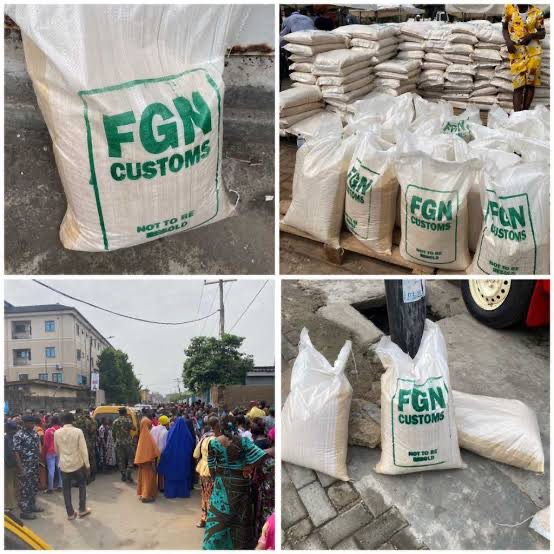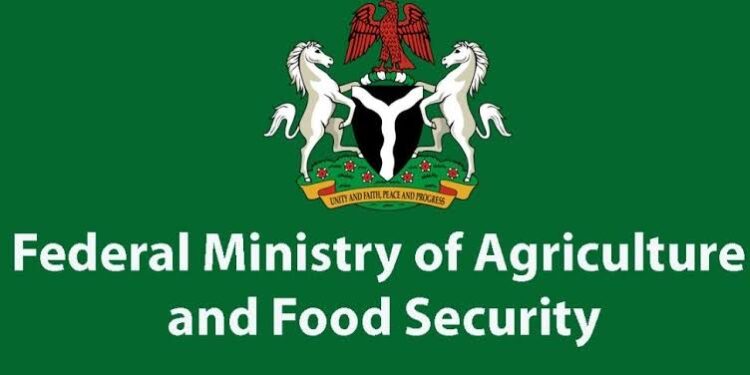Many Nigerians have found themselves unable to access the subsidized N40,000 bag of rice that the federal government promised to distribute, owing to irregularities and a deliberate lack of clarity by civil servants. These issues have caused widespread frustration and confusion about the process.
On September 5, the Federal Ministry of Agriculture and Food Security officially launched the sale of 30,000 metric tons of milled rice to citizens. This move was part of the government’s broader effort to alleviate the food crisis that many Nigerians are facing.
According to Haruna Sule Abutu, the director of Food and Strategic Reserves at the Ministry of Agriculture and Food Security, the rice was to be sold at a flat rate of N40,000, and multiple sales points would be set up across the Federal Capital Territory (FCT), eventually expanding to states across the country.
“The rice is not just for public servants; it is going to go round all the country. Every state is allocated a certain quota, and in the FCT, we will have as many as five to six points of sales,” Abutu stated.
Additionally, Abutu emphasized that individuals who wish to purchase the 50kg bags of rice would need to provide their National Identification Numbers (NINs).

He added that the sale process was designed so that buyers could pay in Abuja and collect their rice in various states, helping to avoid chaos or stampedes.
However, an investigation revealed that, by the second week of sales, only five sales points had been established: the Economic and Financial Crimes Commission (EFCC) headquarters, the Independent Corrupt Practices and Other Related Offences Commission (ICPC) headquarters, the Head of Service headquarters, the Federal Capital Development Authority (FCDA), and the Federal Capital Territory Administration (FCTA) Secretariat.
But soon after, these sales points were closed, and the ministry reduced the number to just one location; the National Agricultural Insurance Corporation (NAIC). Worse still, the rice was not reaching the states as initially promised.
In addition, it was revealed that numerous bags of rice had already been distributed among various ministries, departments, and agencies (MDAs), although the exact quantities had yet to be disclosed.
Abutu, who oversees the sale and distribution of the rice, was unavailable for comment. He did not respond to messages sent via text and WhatsApp, nor did he answer phone calls from reporters, raising more concerns about transparency and accountability in the process.
The situation became even more chaotic in the days following the initial sale. On Monday, September 9, 2024, some Nigerians successfully bought the rice at the NAIC for N40,000.
However, by the following day, a large crowd had gathered at the location, overwhelming the fewer than 10 staff members tasked with confirming the NINs of buyers.
Vincess Okushi, an Abuja-based online journalist, who was personally affected by the poorly organized process, expressed his frustration.
He recounted his experience at the NAIC, where he and others stood in line from morning until evening, only to leave empty-handed. He further highlighted the confusion and lack of transparency, noting, “Today, I found myself at NAIC. We stood in line from morning till evening, only to leave empty-handed, without a grain of rice.”
Okushi continued, explaining how he later discovered that the rice was being sold within various ministries. This revelation angered many Nigerians, particularly non-staff citizens, who felt excluded from the sale.
According to Okushi, “We proceeded to the Office of the Head of Service (HoS), where we discovered that the rice was being sold within various ministries. This approach was met with discontent, as many voiced their frustrations over the exclusion of non-staff from the sales process.”
Further inquiry revealed that each ministry, agency, and department had been allocated a certain number of bags of rice, and these were being distributed among their staff, leaving the general public with very little access to the subsidized product.

Okushi expressed concern about the lack of fairness in the process and said the only public access point for the rice had been closed down. “The only public access point for this rice, NAIC, appears to have been shut down, leaving citizens to navigate long lines and poorly managed distribution processes that put their safety at risk,” he added.
He also pointed out that many people, including journalists, had abandoned their work just to secure the essential commodity, only to leave in frustration.
Chioma, a civil servant whose surname has been withheld for safety reasons, echoed the frustrations of many others. She explained that civil servants were unable to purchase the rice because most of the allocations had already been exhausted by various ministries.
“We want to buy, but until the agencies handling the sales finish selling to their staff, we cannot have access. In fact, as of yesterday (September 10), I learnt they had exhausted the supply given to them. We will get it when it gets to us,” she said.
A staff member from the Ministry of Budget and Economic Planning also expressed dissatisfaction with the system. Speaking anonymously, the civil servant noted that the government had not made the process efficient, stating, “I need the rice but cannot go through the process of queuing for hours.
If the government wants civil servants to get rice, they can send it to all the MDAs. How can they delegate less than five sales points in the FCT, knowing the population of civil servants?”
In various states, civil servants have also lamented the unavailability of subsidized rice. A staff member in Lagos State’s Ministry of Education, who also chose to remain anonymous, said, “The federal government needs to fulfill its promise on the N40,000 rice. We are yet to see rice after several weeks of announcement. The people are hungry, yet we are yet to receive any rice.”
In Ondo State, a civil servant known as Motunrayo also raised concerns about the delays in distributing the rice. “This is taking longer than expected. The federal government should consider the rate at which food costs are affecting Nigerians. We are yet to see the rice in Ondo State, let alone know its distribution centres. The federal government needs to act fast,” she said.
Similarly, a civil servant in Ekiti State, who also wished to remain anonymous, urged the federal government to provide more clarity regarding the rice’s availability.
“The rice the federal government said would be sold for N40,000 is yet to arrive in Ekiti. The federal government needs to announce to us if it has distributed the rice, rather than keep our hopes high and/or is the state government hiding this?” she questioned.
In Enugu State, a staff member in the civil service also confirmed that no ministry had yet received the subsidized rice.
State governments have also responded to these concerns. Ebenezer Adeniyan, the chief press secretary to the Ondo State governor, confirmed on Wednesday that the state had not yet received any palliatives from the federal government.
Similarly, Gbenga Omotosho, the commissioner for information in Lagos State, said he had no information on the availability of rice in the state as of Wednesday.
Debo Adeniji, the public relations officer for the Public Service Office in Lagos, echoed this, stating that there was no record of the palliative rice and the state had yet to receive any allocations.
In Osun State, Kolapo Alimi, the state’s commissioner for information, confirmed that the state had not yet received the rice, but assured that information would be made available to the public once the rice was delivered.
Despite these delays, an anonymous staff member from the Ministry of Agriculture and Food Security assured reporters that the sales were still ongoing, although allocations had yet to be dispatched to the states.































